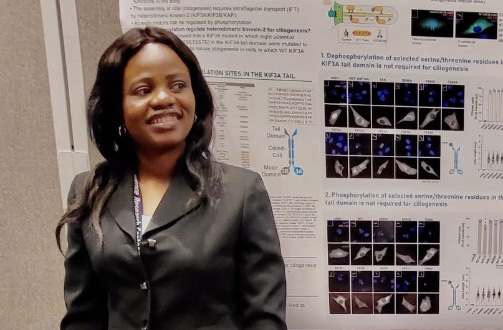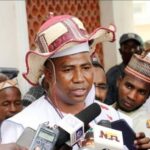Ayoola Fasawe, a scientist researcher in biotechnology and human anatomy, is unwavering in her commitment to preventing the worldwide spread of infectious diseases.
Fasawe’s passion lies in meticulously analyzing the causal patterns of diverse diseases, including COVID-19, cholera, and diphtheria. Leveraging her expertise in gene engineering, she is at the forefront of vaccine development and the enhancement of human immunity.
“As a dedicated Research Scientist specializing in biotechnology and human anatomy, my mission is to prevent the global spread of infectious diseases,” Fasawe declares.
Her impactful work involves delving into the causative patterns of diseases like COVID-19, contributing to vaccine development, and boosting human immunity. Fasawe has a notable research background, with publications on genetic mapping, phenotype analysis and cellular organization. She has also played a crucial role in genetic susceptibility and disease surveillance studies.
With over three years of experience as a research associate, Fasawe profoundly understands the molecular-level cellular organization, homeostasis, and drug response. She is driven by enhancing public health, maintaining a healthy workforce, and preventing economic losses.
“My specialties include gene therapy in cells, cilia assembly, regulation, protein-protein interaction, and cloning. I have extensive experience in cell bioassay development, mammalian cell culture, high throughput screening, and microscopy,” Fasawe adds.
During her tenure as a Graduate Research/Teaching Assistant at Illinois State University from January 2021 to 2023, Fasawe led investigations into molecular motor proteins’ function and regulation, contributing significantly to understanding cellular organization and homeostasis. Her responsibilities included high-throughput screening using MTS to determine IC50 values of compound cytotoxicity in human fibroblast cell lines. Fasawe excelled in cell bioassays, bioinformatics, genetic manipulation, microscopy-based assays, data interpretation, image analysis software, analytic biochemistry assays, and teaching responsibilities. She also played a key role in creating, editing, and documenting production processes, SOPs, quality control measures, and safety protocols.
Furthermore, Fasawe’s ability to synthesize research results into written reports has led to successful grant applications and national conference presentations. Her tireless dedication and multifaceted contributions make her a leading figure in pursuing global infectious disease prevention.






